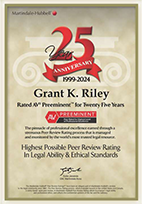What Is Slum Housing?
At its core, slum housing is property that is uninhabitable because it poses a safety risk to the tenants or their children. Additionally, if a property is missing a fundamental feature, such as heat or running water, the law may classify it as slum housing.
How Do You Know If a Property Is Slum Housing?
California law requires landlords to upkeep properties and ensure they are habitable. The landlord may be legally liable if a building or unit fails to meet the legal requirements.
Slum housing can apply to a variety of conditions that a landlord is responsible for addressing.
Under California law, a property or unit may be slum housing if it does not have the following:
- Weather protection or waterproofing
- Plumbing, heating, electrical wiring, and air conditioning that meet the regulations in effect when it was first installed and remains operable
- Hot and cold running water that the tenant can control
- Walls, floors, stairs, and other structures in safe and good working order
Other conditions may also qualify a property as slum housing. Things like cockroach or other bug infestations, lack of running water or hot water, serious plumbing issues, and other unsanitary conditions are a hazard to your and your family’s health.
What Are a Landlord’s Obligations Under California Law?
Landlords must provide habitable living quarters for tenants in exchange for the rent the tenants pay each month. Typically, tenants are responsible for making minor repairs, such as changing light bulbs and taking general care of the property. Landlords, on the other hand, make major repairs, such as addressing leaky faucets, faulty wiring, and other more substantial issues.
Landlords should make major repairs promptly and effectively and replace any inoperable or defective appliances (such as the water heater or dryer). When landlords fail to meet their obligations to keep up the properties and address tenants’ concerns properly, they may be legally liable for the damages they cause. Housing lawyers can help tenants determine if they are the victim of slumlord housing in LA and pursue compensation for what they have gone through.
Legal Protections for Tenants Living in Los Angeles Slums
California law provides robust protections for tenants, and we at Riley Ersoff are well-versed in these laws. We will utilize every available legal tool to fight for your rights.
Here are some key California laws that are relevant to slum housing cases:
- California Tenant Protection Act (AB 1482): This landmark legislation provides protections against excessive rent increases and arbitrary evictions.
- California Civil Code §1941: This statute outlines the “warranty of habitability,” which requires landlords to maintain their rental properties in a safe and habitable condition. This includes providing essential services such as hot and cold running water, heat, and working plumbing.
- California Health and Safety Code: This code sets forth specific health and safety standards for rental properties, addressing issues such as mold, lead paint, and pest infestations.
We understand the complexities of these laws and how to apply them effectively to your case. We will fight to hold your landlord accountable for any violations.
How Do I Know If I Have a Valid Slum Housing Legal Claim?
Slumlords often neglect basic maintenance and repairs, creating hazardous living conditions.
Here are some common examples of slum housing conditions that we fight against:
- Pest infestations: Cockroaches, bedbugs, and rodents can infest even the cleanest homes, but negligent landlords allow these infestations to persist, causing significant health hazards.
- Plumbing and water issues: Lack of running water, inconsistent hot water, leaks, scalding temperatures, and sewage issues are all signs of a landlord failing to maintain basic plumbing.
- Structural damage: Deteriorating ceilings and walls, peeling paint, holes in the walls, broken windows and doors, and defective stairs or railings all pose serious safety risks to tenants.
- Unsafe living conditions: Mold, dampness, defective electrical wiring, and unsanitary common areas can create serious health hazards and make a property uninhabitable.
These conditions are unacceptable. At Riley Ersoff, we hold slumlords accountable for their negligence and fight for safe and habitable housing on behalf of our clients.
Can I Be Evicted for Complaining to or Suing My Landlord?
Absolutely not. No landlord is allowed to trample on or ignore your rights. A landlord cannot retaliate against a tenant for asking for repairs, mobilizing other tenants in an apartment building to ask for repairs, complaining to the housing or health department, or taking steps to sue a landlord.
This is where we come in. Riley Ersoff is one of the most trusted and successful law firms in California when it comes to making landlords pay for their negligent and abusive conduct. Unlike most housing lawyers, we love suing landlords.
We’ve recovered tens of millions of dollars on behalf of tenants who have been forgotten and harmed by slumlords. Call us. We are here to help.
How Can a Slum Housing Attorney Help?
If you are living in a slum housing environment, it can be exhausting and overwhelming. The thought of filing a legal claim against your landlord may sound intimidating, but a slum housing lawyer in Los Angeles can help you and your loved ones reclaim your agency and advocate for your best interests.
Services That an Attorney Provides
An attorney can help protect you against illegal practices that landlords use to keep tenants quiet, like threatening to evict them. You deserve better than to live in slum housing and to be subjected to intimidation tactics to keep you and your family living in fear.
A tenant lawyer in Los Angeles provides the following vital services to people living in slum housing:
- Perform legal research to determine the tenant’s legal rights
- Investigate the legal claim to determine what occurred
- Take steps to help protect the tenant against retaliatory actions
- File a legal claim on behalf of the tenant
- Write demand letters to pressure the landlord to cease engaging in illegal practices
- Negotiate fair settlement on behalf of tenants
- Communicate with the landlord on behalf of the tenant
These are just some ways an attorney can help alleviate your burden and create a path for you and your family to safe housing and fair compensation. The most important role of a tenant attorney is to serve as an advocate and give tenants peace of mind in knowing that someone is on their side, fighting for them.
Reasons to Hire a Slum Housing Lawyer in LA
Slum housing lawyers in Los Angeles can help ensure you have a valid case and that your claim will hold up under stern review. Unlike the slumlords, your attorney fights for you.
With Riley Ersoff, you’ll be able to explain your case and talk to a housing lawyer at no cost. If the tenant attorney takes your case, they’ll walk you through the process and handle any negotiations along the way. We will also take your case to trial if that is the best course of action. So, if you’re seeking an accomplished lawyer who sues landlords, look no further and contact us today for a no-obligation consultation.
Contact the Top Los Angeles Slum Housing Lawyers Today
The slum housing lawyer at Riley Ersoff has represented hundreds of tenants and achieved millions of dollars in damages awards. Our attorneys have a proven track record of success and can fight aggressively to protect your rights throughout the entire process.
If you believe your apartment or rental home is uninhabitable or if you have been subject to slum housing conditions, don’t continue to suffer. Call (888) 658-9695 or contact us online to consult with a slum housing lawyer in Los Angeles today.
Community-Led Approaches to Combating Slum Housing in California
In California, several community-led approaches have been utilized to address slum housing conditions.
Here are some examples:
- Tenant organizing and advocacy: Community organizations and tenant unions play a crucial role in empowering residents and advocating for their rights. They provide support and resources to tenants living in slum housing, helping them organize, raise awareness about their living conditions, and collectively demand improvements. These organizations often collaborate with legal aid groups to assist tenants facing eviction or housing-related legal issues. See example here.
- Community land trusts: Community land trusts (CLTs) are nonprofit organizations that acquire and hold land for the benefit of the community. CLTs can acquire blighted or vacant properties in slum areas, rehabilitate them, and provide affordable housing options. By involving community members in the decision-making process, CLTs contribute to sustainable housing solutions. See example here.
- Tenant cooperatives: Tenant cooperatives involve residents collectively owning and managing their housing units. In slum areas, residents can form cooperatives to acquire and rehabilitate their buildings, transforming them into safe and habitable housing. Cooperatives provide residents with greater control over their living conditions, affordability, and decision-making processes. See example here.
Community development corporations: Community development corporations (CDCs) are nonprofit organizations focused on revitalizing low-income communities. CDCs in California work towards creating affordable housing, organizing community resources, and providing housing counseling services. They often partner with local governments, private entities, and community members to develop comprehensive strategies for slum housing improvement. See example here
Understanding Your Rights as a Tenant
Navigating the complexities of slum housing law can be challenging, but it’s important to understand your rights as a tenant to effectively advocate for yourself and improve your living situation. California law provides a variety of protections for tenants living in substandard housing conditions. At Riley Ersoff, we believe that informed tenants are empowered tenants.
Key tenant rights include:
- Right to Habitable Living Conditions: Landlords are required to ensure that rental properties meet basic health and safety standards.
- Right to Report Issues Without Retaliation: You can complain about unsafe conditions or demand repairs without fear of eviction or harassment.
- Right to Legal Representation: You have the right to seek help from attorneys who can represent you and protect your interests.
- Right to Join Tenant Unions: Tenants can organize and join unions to collectively advocate for better living conditions.
- Right to Withhold Rent in Specific Situations: Under certain circumstances, tenants may be able to withhold rent until necessary repairs are made.
If you believe your rights have been violated or if you’re unsure about your legal standing, our experienced attorneys are here to help. We’ll work diligently to ensure that you receive the protection and justice that you deserve. Understanding your rights is the first step towards reclaiming your living space and advocating for safer, healthier housing. Don’t hesitate to reach out for a consultation!
Tenant Rights and Resources for Slum Housing Issues
Understanding your rights as a tenant in slum housing situations is vital for protecting yourself and ensuring you receive the safe and habitable living conditions you deserve. At Riley Ersoff, we believe that knowledge is power, and we strive to empower tenants with the resources and information they need to navigate these challenging circumstances.
In addition to our legal guidance, here are some valuable resources that can aid you in addressing slum housing concerns:
- California Department of Consumer Affairs: This agency offers online guides and assistance for tenants, including details on housing laws and tenant rights.
- Local Housing Authority: Reach out to your local housing authority to report slum conditions and learn more about available public housing resources and programs.
- Tenant Unions and Advocacy Groups: Joining a tenant union or seeking support from local advocacy groups can provide you with community backing and additional legal resources.
- Health and Safety Code Resources: Familiarize yourself with California’s Health and Safety Code regarding rental properties, which outlines your landlord's responsibilities to provide safe living conditions.
If you suspect that you are living in slum conditions, don’t hesitate to reach out to our experienced team at Riley Ersoff. We can help you navigate these resources and ensure that your voice is heard in the fight for your rights.



















